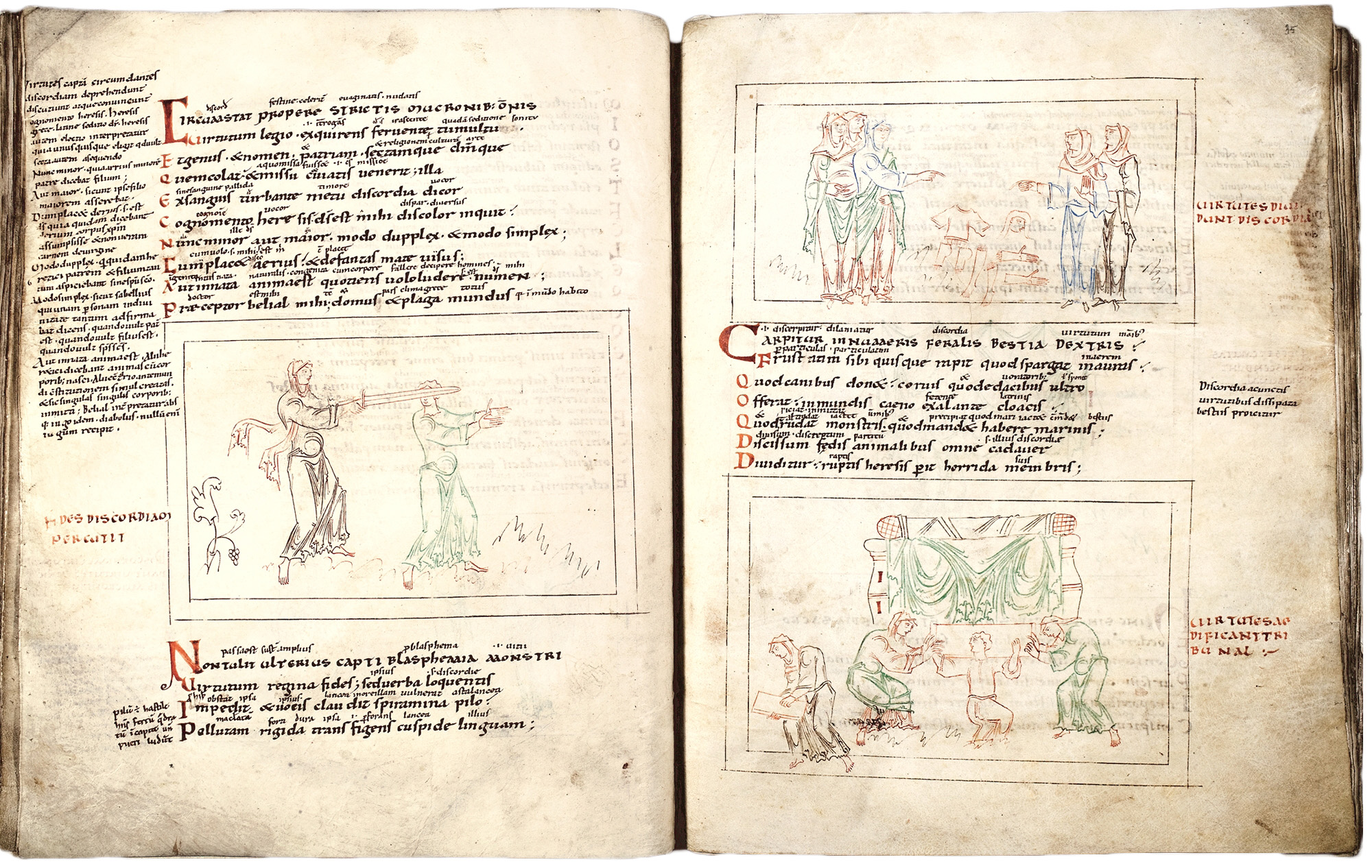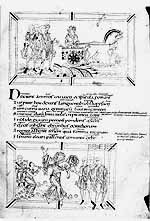Prudentius
Aurelius Prudentius Clemens, German Prudenz, (* 348, † after 405 ) was a Christian and late antique poets.
Life and work
Prudentius was (northern Spain), born in the Roman province Tarraconensis and probably died there, too, his exact date of death is unknown. Likewise, his place of birth is uncertain; it could have been Caesar Augusta ( Saragossa ), Tarraco (Tarragona ) or Calagurris ( Calahorra ).
Prudentius studied rhetoric and was a very successful lawyer and twice provincial governor, perhaps in his native country, until Emperor Theodosius I summoned him to his court. There he made a career as a high imperial official in the office. Later ( maybe around 392) Prudentius himself withdrew from public life and became an ascetic. He fasted every day until the evening, and took no animal food. He got himself an edition of his collected works, and added a preface, which he dated to 405. The collection is well communicated; places it bears traces of later dogmatic revision.
Prudentius is the most important Christian poet of antiquity, his work, however, can be dated only very approximate. His poetry is influenced by early Christian writers such as Tertullian and Ambrose of Milan and by the Bible and the Acts of the Martyrs. But he also used his extensive knowledge of pagan texts and leans quite on to pagan idols. His Christmas hymn Divinum Mysterium ( " Corde natus ex parentis " ) and the hymn for Epiphany O sola magnarum urbium, both from the Kathemerinon, are still in use today. In his work Contra Symmachum the terms of the Ambrosian idea of Rome is tangible, which takes up the idea of the greatness of Rome with the renewal by Christianity.
But his most influential work is the Psychomachia, the first allegorical poem of Latin literature; she was excited and source for the medieval allegories.
Prudentius was very popular in the Middle Ages and was also read in the classroom. There have been handed down over 300 manuscripts, the oldest dating from the 6th century.
Works
- Liber Cathemerinon ( German: Daytime Book) consists of 12 verses written in lyrical poems at different times and church festivals
- Liber Peristephanon ( German: Martyr price) contains 14 verses written in lyric poems on Spanish and Roman martyrs
- The Apotheosis ( German: deification ) hexametric a didactic poem; attacked deniers of the Trinity and the divinity of Jesus
- Hamartigenia ( German: origin of sin ) another hexametric didactic poem; initiating attacks the Gnostic dualism of Marcion and his followers to
- Psychomachia ( German: Battle of the Soul) describes in nearly 1,000 hexameters the struggle of personalized faith, united with the seven cardinal virtues, against the seven vices to the human soul
- Libri contra Symmachum ( German: books against Symmachus ) object to the petition of the pagan senator Quintus Aurelius Symmachus, the altar of Victoria should be placed in the Senate House again
- Dittochaeon ( German: The double feed ) comprises 49 four-line epigrams to images from the Old and New Testament










